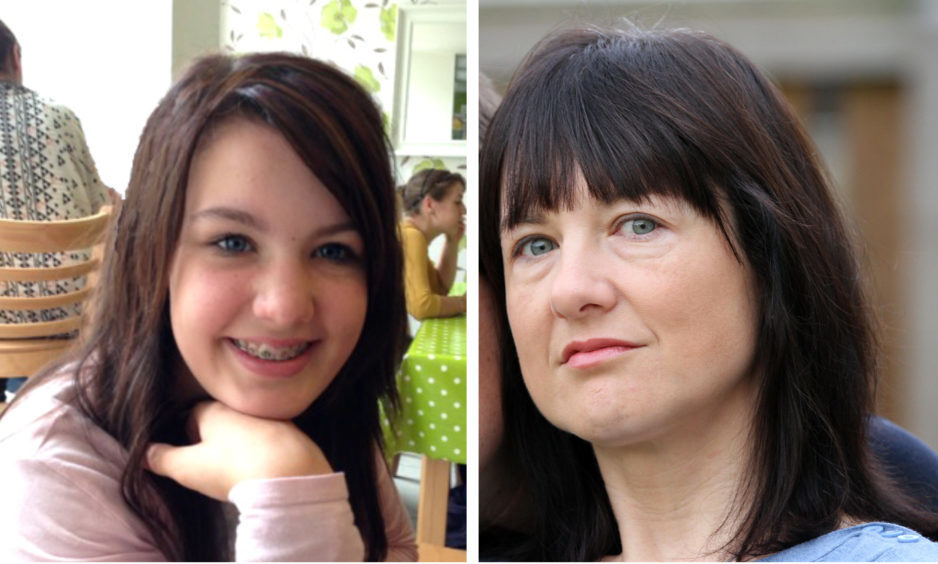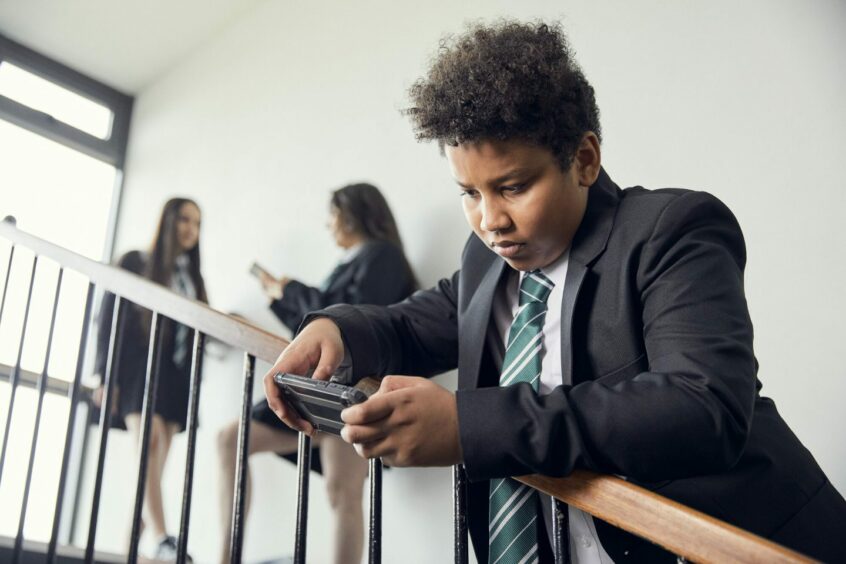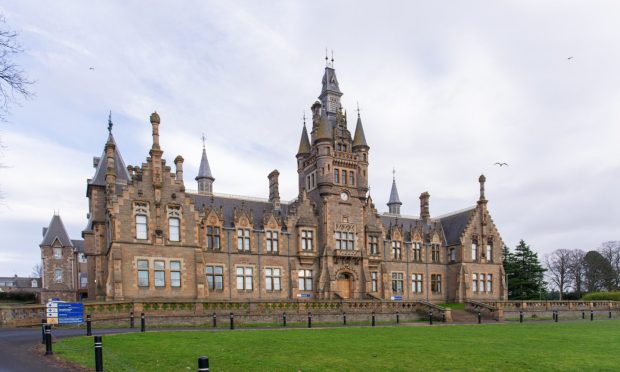Angus schoolgirl Rachel Talbot was only six years old when another girl from the region took her life after viewing suicide guides online.
Almost nine years after the death of Sophie Parkinson, the internet and social media continue to pose a risk to young people of Rachel’s generation.
That’s why the Brechin High School pupil is leading a national campaign for better protection, backed by Sophie’s mum.
With the NSPCC, Rachel, 15, is pushing for new online safety legislation to be passed by the UK Parliament to be made stronger.
Last week she handed a letter signed by almost 40,000 people to UK Culture Secretary Michelle Donelan, calling for prosecution of tech bosses when there are serious failings in protecting children.
Dundee High School pupil Sophie was only 13 years old when she died in her family home in Liff in March 2014. She had struggled with her mental health for several years and had viewed suicidal and self-harm posts and been groomed on social media.
Rachel believes there is too much pressure on young people to be responsible for their own safety online.
She said: “Too many children are exposed to content promoting self-harm and eating disorders.
“It’s become a norm in our everyday lives.
“We need a bill that is going to hold big tech firms accountable.
“Without it, young people are on their own. We’ve been on our own for so long online – and it’s not working.”
Has your child’s safety been put at risk by social media? If so our Schools and Family team would like to hear your story to help shine a light on this important issue.
Sophie’s mum Ruth Moss also wants robust new legislation to prevent other children being vulnerable to harm like her daughter.
She said: “As far as I’m concerned, where companies wilfully break the law and put the lives of children like my daughter at risk, of course senior managers should be criminally accountable.
“The consequences of non-compliance are life changing for children like Sophie.
“Criminal liability drives the right behaviours in those with the most responsibility. It works in other industries and there is no reason in my mind as to why big tech executives should be treated any differently.”
The online safety bill is due to return to the House of Commons next Monday. In its current format it would hold tech bosses responsible for failing to give information to the regulator Ofcom, but not for any corporate decisions which result in preventable harm or sexual abuse.
It has, however, been beset by delay, during which time the NSPCC estimates 600 online child sexual abuse crimes will have been recorded by Police Scotland.
Sir Peter Wanless, NSPCC chief executive, said young people continued to be bombarded with “hugely dangerous material”.
He said: “This year must be the year legislation delivers the systemic change for children online that our polling shows families up and down the UK want.
“The government can do this by delivering bold, world-leading regulation that ensures the buck stops with senior management for the safety of our children.”
What is the online safety bill?
New internet safety laws progressing through the UK Parliament are aimed protecting adults and children online, making social media companies more responsible for users’ safety.
To protect children it would make social platforms:
- remove illegal content (including promotion of self harm) quickly or prevent it from appearing in the first place
- prevent children from accessing harmful and age-inappropriate content
- enforce age limits (many social media platforms are for age 13+) and age-checking measures
- ensure risks and dangers to children on largest social media platforms are more transparent, including by publishing risk assessments
- provide parents and children with clear and accessible ways to report problems.














Conversation